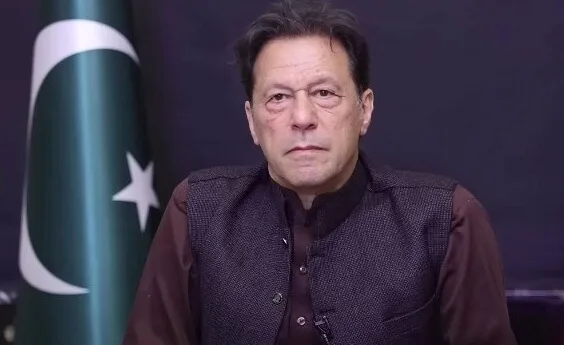As Imran Khan nears a year in prison, his party announces a major nationwide protest to demand his release and challenge the current government’s policies
Imran Khan’s party, Pakistan Tehreek-e-Insaf (PTI), has declared plans for a nationwide protest on August 5 to mark the completion of one year since the former Prime Minister’s incarceration. Khan, who was ousted from office and imprisoned on charges that his supporters label as politically motivated, has become a rallying point for his party and its supporters.
The planned protest is set to be the largest demonstration since Khan’s arrest, reflecting the continued public dissatisfaction with his imprisonment and the government’s handling of his case. PTI leaders have called on supporters across the country to participate in the protest, which aims to draw attention to Khan’s continued detention and to press for his immediate release.
Embed from Getty ImagesKhan’s arrest, which occurred in August 2023, followed a series of legal and political battles that saw him removed from office and charged with various offenses. His supporters argue that the charges are a result of political retaliation and that Khan has been unfairly targeted by the current administration. The PTI has consistently maintained that the legal proceedings against Khan are a violation of democratic principles and an attempt to silence dissent.
The protest on August 5 will feature rallies in major cities, including Lahore, Karachi, and Islamabad. PTI leaders have promised that the demonstrations will be peaceful, but they are preparing for a significant turnout. The party’s leadership hopes to use the protest to galvanize public opinion and put pressure on the government to address their concerns.
The timing of the protest is significant as it coincides with the anniversary of Khan’s imprisonment. It serves as both a symbolic gesture and a strategic move to highlight the perceived injustices faced by the former Prime Minister. The PTI has framed the protest as a fight for justice and democracy, drawing parallels between Khan’s situation and broader concerns about political repression in Pakistan.
In response to the planned demonstrations, the government has mobilized security forces in key cities to ensure order and prevent disruptions. Authorities have expressed concerns about potential violence and have called for restraint from all parties involved. The government has also reiterated its stance on Khan’s legal situation, maintaining that the charges against him are legitimate and that his detention is a matter of legal process.
The nationwide protest is expected to draw international attention, as Khan remains a prominent figure in Pakistani politics and his case has attracted considerable media coverage. The outcome of the protest could influence the political landscape in Pakistan and potentially affect the government’s handling of other opposition figures.
Analysis
Political Perspective The planned nationwide protest by PTI underscores a significant moment in Pakistan’s political climate. Imran Khan, a former Prime Minister and a central figure in Pakistani politics, has been a vocal critic of the current administration. His continued detention has become a focal point for political opposition, and the protest is likely to amplify calls for his release. The demonstration could also serve as a test of the government’s ability to manage dissent and maintain political stability. Khan’s supporters view the protest as a pivotal opportunity to challenge the current government and mobilize support for their cause.
Social Perspective The protest reflects deep-seated social divisions and dissatisfaction with the current government. Khan’s supporters, who see his imprisonment as unjust, are using the protest to express their frustration and demand change. The demonstrations are likely to draw significant public participation, reflecting widespread discontent with the political status quo. The protest will also highlight issues related to political freedom and justice, resonating with broader societal concerns about the treatment of opposition figures and the state of democracy in Pakistan.
Economic Perspective While the primary focus of the protest is on political issues, the economic impact of the demonstrations could be substantial. Large-scale protests can disrupt daily life, affect businesses, and lead to economic instability. The government’s response, including mobilizing security forces and preparing for potential disruptions, suggests a concern about the economic consequences of the protest. Additionally, the economic impact of Khan’s detention and the broader political climate could influence investor confidence and economic policies.
Gender Perspective The protest’s impact on gender dynamics is less direct but still relevant. Women, particularly those in Khan’s support base, may be actively involved in the demonstrations, highlighting issues related to political representation and rights. The protest provides a platform for various gender groups to voice their concerns about political repression and justice. Women’s participation in the protest could also shed light on their role in political activism and the broader struggle for democratic rights in Pakistan.
Racial Perspective The protest is primarily driven by political and legal issues rather than racial concerns. However, it is essential to consider the diverse ethnic and regional backgrounds of Khan’s supporters, who come from various parts of Pakistan. The protest may reflect regional disparities and varying levels of support for Khan based on local contexts. Ensuring that the protest is inclusive and addresses the concerns of all demographic groups will be crucial for maintaining unity and effectiveness.
